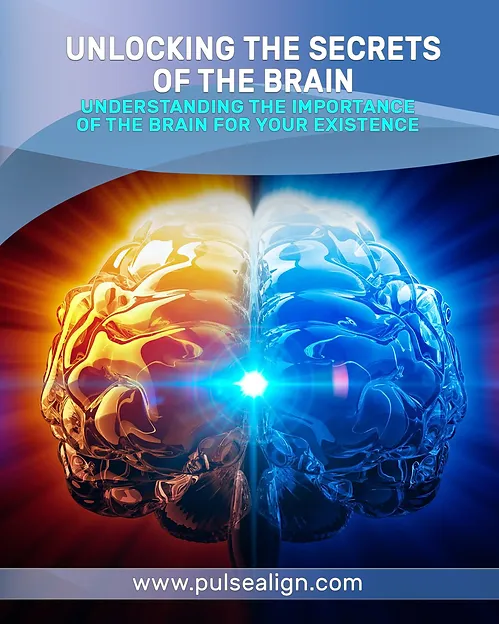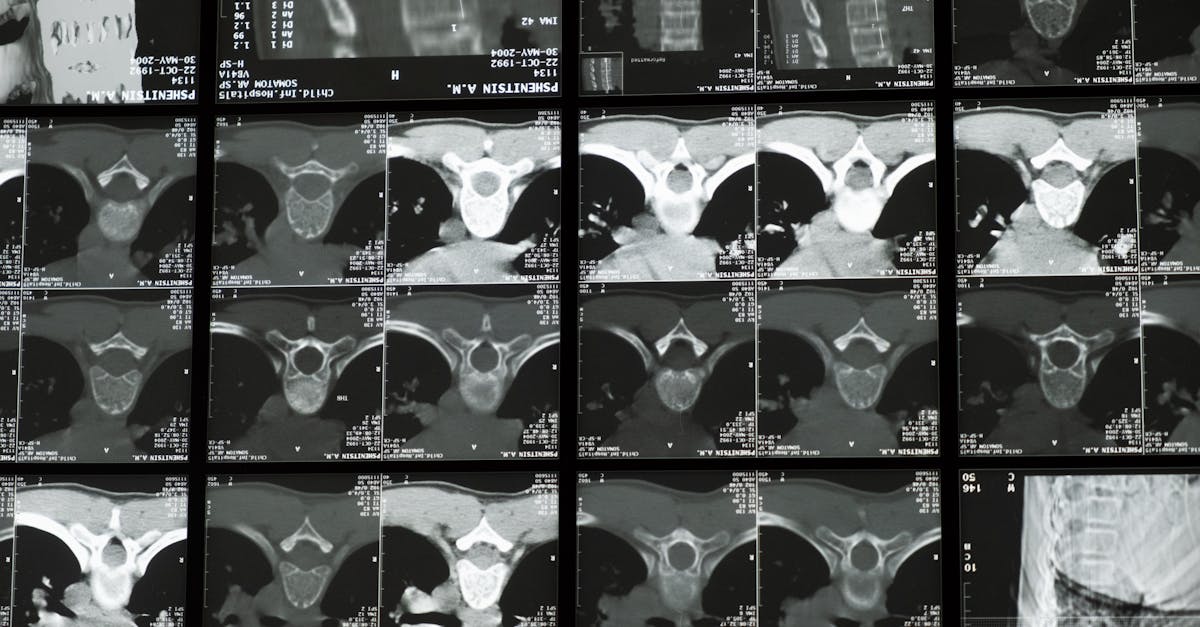The human brain is a complex and fascinating organ that serves as the command center for our entire nervous system. Its intricate functions shape our thoughts, emotions, perceptions, and physiology, ultimately defining our existence. In this beginner’s guide, we will explore the significance of the brain for our health, well-being, and personal growth, shedding light on the extraordinary capabilities of this remarkable organ.
The Crucial Role of the Brain in Maintaining Your Health
The brain plays a vital role in maintaining your overall health, as it is responsible for regulating numerous bodily functions. This intricate organ constantly processes and interprets sensory information, allowing us to perceive and interact with our environment. Additionally, the brain manages critical processes such as respiration, heart rate, and hormone production, which are essential for our survival.
Emotional well-being is also closely tied to brain health. The brain’s limbic system, which includes the amygdala, hippocampus, and hypothalamus, is responsible for regulating emotions, memory, and stress responses. Maintaining a healthy brain through proper nutrition, exercise, and stress management can significantly impact your mental health and emotional stability.
Furthermore, the brain enables higher cognitive functions such as learning, problem-solving, and decision-making. A healthy brain is better equipped to support critical thinking and creativity, which are essential for personal and professional success.
In summary, the brain’s role in maintaining our physical and mental health cannot be overstated. Taking care of this vital organ is crucial for leading a happy, healthy, and fulfilling life.
The Importance of the Brain in Shaping Your Thoughts and Perspectives
The brain is the epicenter of our thoughts, beliefs, and perspectives, shaping our understanding of the world around us. It is responsible for processing information, creating memories, and generating ideas that influence our daily decisions and actions. The prefrontal cortex, a region located at the front of the brain, plays a particularly critical role in the formation and expression of thoughts.
Neuroplasticity, the brain’s ability to adapt and rewire itself throughout our lives, underscores the importance of the brain in shaping our thoughts. This remarkable quality allows us to learn from new experiences, acquire new skills, and adapt our perspectives as we encounter novel situations or challenges. Neuroplasticity also makes it possible for us to change unhelpful thought patterns and beliefs, promoting personal growth and self-improvement.
In essence, the brain’s impact on our thoughts and perspectives is profound. By nurturing a healthy brain, we can develop the cognitive flexibility and resilience needed to navigate life’s complexities with greater ease and confidence.
Life as a Projection of Brain Activity: How Your Brain is Your Only Reality
Our perception of reality is intricately linked to the complex activity within our brains. Through the process of collecting, interpreting, and integrating sensory information, the brain constructs a unique representation of the world around us. This personal perception of reality is a projection of our brain’s activity, shaped by our individual experiences, memories, and cognitive processes.
Neuroscientists have made significant strides in understanding how the brain creates this sense of reality. For instance, the phenomenon of “perceptual constancy” allows us to recognize objects and their properties, such as color and shape, consistently despite changing external conditions. This stable perception of the world is made possible by the brain’s ability to extract and interpret relevant information from a dynamic environment.
In a sense, life as we know it is a product of our brain’s ceaseless activity. By appreciating the role of the brain in creating our unique perceptions, we can gain valuable
insights into our own realities and better understand the diverse experiences of others.
Feelings and Sensations: Exploring the Brain-Based Nature of Our Emotions and Perceptions
Feelings and sensations are fundamental aspects of our subjective experience, deeply rooted in the activity of our brains. Emotions, such as happiness, sadness, anger, and fear, originate from specific neural circuits and chemical messengers, primarily within the limbic system. The amygdala, for example, plays a key role in processing emotional stimuli and generating emotional responses.
Sensations, on the other hand, encompass our perception of the physical world through our senses, such as touch, taste, smell, sight, and hearing. These perceptions arise from the brain’s interpretation of sensory information received from specialized nerve cells, known as receptors. Different brain regions are dedicated to processing information from each of our senses, ultimately creating a cohesive sensory experience.
In conclusion, both feelings and sensations are brain-based phenomena, highlighting the critical role of the brain in shaping our emotional and perceptual experiences. Understanding the neural basis of these experiences can provide valuable insights into the complexity of human emotions and the intricacies of sensory perception.
The Remarkable Multitasking Brain: Managing Thoughts, Emotions, Perceptions, and Physiology Simultaneously
One of the most remarkable aspects of the human brain is its ability to manage multiple tasks and processes simultaneously, including thoughts, emotions, perceptions, and physiological functions. This intricate organ efficiently integrates these various aspects to create a cohesive and meaningful experience of reality.
The brain’s multitasking ability is made possible by the intricate network of neural connections and specialized regions that work together in harmony. This complex interplay ensures that we can effectively perceive our environment, generate thoughts, experience emotions, and regulate vital physiological processes all at once.
For instance, while the prefrontal cortex is responsible for higher cognitive functions, other regions like the hypothalamus maintain essential physiological functions, such as regulating body temperature, hunger, and thirst. Moreover, the autonomic nervous system, which is governed by the brain, oversees involuntary functions like heart rate, digestion, and respiratory rate.
In conclusion, the brain’s incredible multitasking capabilities allow us to navigate and make sense of the world around us, while simultaneously managing our thoughts, emotions, perceptions, and physiological needs.
Addressing Life’s Challenges: Recognizing the Central Role of the Brain in Resolving Issues
As we navigate the complexities of life, it is crucial to consider the central role of the brain when addressing various challenges and issues. Since the brain is responsible for managing our thoughts, emotions, perceptions, and physiological processes, it inevitably plays a significant part in shaping our responses to different situations.
To effectively tackle life’s challenges, we must first understand how our brain processes information and generates responses. By recognizing the impact of our brain’s functions on our emotions, thought patterns, and behavior, we can develop healthier coping strategies, make better decisions, and improve our overall well-being.
For example, understanding the relationship between stress and the brain’s activity can help us develop effective stress management techniques, such as mindfulness meditation, deep breathing exercises, or engaging in physical activities. Similarly, being aware of the brain’s role in shaping our thought patterns can empower us to challenge negative beliefs and cultivate more positive, constructive thinking.
In conclusion, acknowledging the central role of the brain when addressing life’s issues is essential for developing effective solutions and fostering personal growth.
Conclusion
The human brain is an extraordinary organ that plays a central role in shaping our existence. By understanding its functions and the impact it has on our thoughts, emotions, perceptions, and physiology, we can better appreciate the complexities of our lives and develop effective strategies for personal growth and well-being. Recognizing the importance of the brain in our daily lives empowers us to make informed decisions, cultivate healthier habits, and navigate life’s challenges with greater resilience and confidence.
References:
- Gazzaniga, M. S., Ivry, R. B., & Mangun, G. R. (2018). Neurociencia cognitiva: La biología de la mente (5ª ed.). W. W. Norton & Company. [https://www.wwnorton.com/books/9780393603170]
- Kandel, E. R., Schwartz, J. H., Jessell, T. M., Siegelbaum, S. A., & Hudspeth, A. J. (2013). Principios de neurociencia (5ª ed.). McGraw-Hill Education. [https://www.mheducation.com/highered/product/principles-neural-science-kandel-schwartz/9780838577011.html]
- LeDoux, J. (2002). El yo sináptico: cómo nuestros cerebros se convierten en lo que somos. Editorial Penguin. [https://www.penguinrandomhouse.com/books/289634/the-synaptic-self-by-joseph-ledoux/]
- Ratey, J. J., & Hagerman, E. (2008). Spark: La revolucionaria ciencia del ejercicio y el cerebro. Little, Brown and Company. [https://www.hachettebookgroup.com/titles/john-j-ratey/spark/9780316113519/]
- Siegel, D. J. (2010). Mindfulness: La nueva ciencia de la transformación personal. Bantam. [https://www.penguinrandomhouse.com/books/29795/the-mindful-brain-by-daniel-j-siegel-md/]
- Doidge, N. (2007). El cerebro que cambia a sí mismo: Historias de éxito personal en la frontera de la ciencia del cerebro. Editorial Penguin. [https://www.penguinrandomhouse.com/books/302248/the-brain-that-changes-itself-by-norman-doidge-md/]
- Sapolsky, R. M. (2017). Comportarse: La biología de los seres humanos en nuestro mejor y peor momento. Penguin Press. [https://www.penguinrandomhouse.com/books/317066/behave-by-robert-m-sapolsky/]
#Lifestyle #naturalhealth #neuroscience
As the visionary CEO of Pulse Align, François is dedicated to transforming the landscape of pain management and posture health. With a deep-rooted passion for innovation and a commitment to excellence, François leads the team in developing cutting-edge solutions that empower individuals to live healthier, pain-free lives. Under his leadership, Pulse Align has become a beacon of hope and support for those navigating postural-related issues and chronic pain. François brings a wealth of experience in neuromodulation and patient management technologies, combining strategic insight with a compassionate approach to address the unique challenges faced by each individual.



